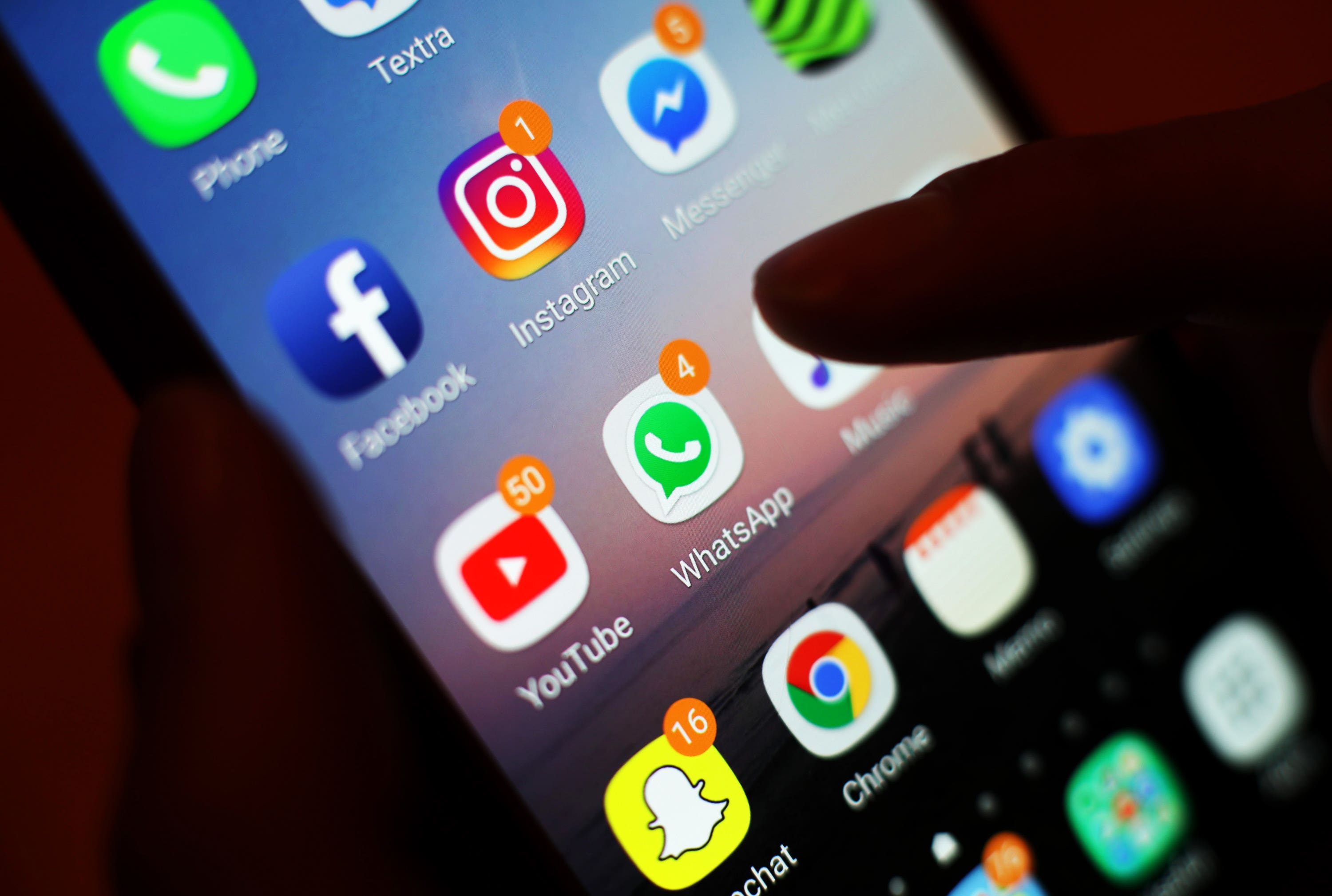Black women more likely to be a victim of cyber flashing, landmark study reveals
Exclusive: Half of Black women surveyed said they had been cyber flashed, compared with 26 per cent of white women

Your support helps us to tell the story
From reproductive rights to climate change to Big Tech, The Independent is on the ground when the story is developing. Whether it's investigating the financials of Elon Musk's pro-Trump PAC or producing our latest documentary, 'The A Word', which shines a light on the American women fighting for reproductive rights, we know how important it is to parse out the facts from the messaging.
At such a critical moment in US history, we need reporters on the ground. Your donation allows us to keep sending journalists to speak to both sides of the story.
The Independent is trusted by Americans across the entire political spectrum. And unlike many other quality news outlets, we choose not to lock Americans out of our reporting and analysis with paywalls. We believe quality journalism should be available to everyone, paid for by those who can afford it.
Your support makes all the difference.Black women are twice as likely to be a victim of cyber flashing compared to their white counterparts, a landmark study has revealed.
A new report, entitled The exposé on women’s and marginalised genders’ social media experiences, highlights the impact of online abuse and areas where social media companies are failing to tackle the issue.
Over 2,000 women were surveyed about their experiences online with 50 per cent of Black women respondents saying they had been cyberflashed, compared with 26 per cent of white women. It is the first prominent study to uncover a racial disparity across cyber flashing experiences within the UK.
Almost half of Black respondents said they had been a victim of online abuse while 91 per cent said it was important to them to have access to a safe space for women and marginalised genders online, compared to 80 per cent of white respondents.
The study was commissioned by Communia, a new social media platform for women and marginalised genders which “prioritises wellbeing and social health”.
Women’s rights activist Seyi Akiwowo, founder of Glitch, a non-profit company that campaigns to end online abuse, previously said Black women’s concerns about online safety have been “ignored for years”.
The company welcomed the report but said more education was needed to reduce online harms “instead of merely focussing on criminalisation, which is currently what we see in the online safety bill”.
“Therefore, we welcome more research that centres the issue of misogynoir and provides tangible solutions,” it said.
Olivia DeRamus, Communia founder, said: “This report reflects how women of colour also face systemic racism digitally, hyper sexualisation, increased risk of abuse – as well as how little is being done to protect their wellbeing on platforms like Facebook, which we can see is rated significantly higher as an unsafe space for Black women than White women in this report.
“It makes sense then that the need for a safe space online for marginalized genders feels even more urgent for Black women at 91 per cent versus the 80 per cent of white women.”
Women of Asian heritage have also reported experiences of heightened abuse based on their ethnicity.
Journalist Suswati Basu said: “Unfortunately, I can concur with the latest report into women feeling unsafe and harmed in online spaces. Over a third of the UK public have been a victim of online abuse.
“This was unfortunately my own experience, especially as a woman of colour and journalist. I was one of the 45 per cent from the global majority who has felt unsafe online, especially when mentioning how refugees are treated in the country.

“I was immediately attacked by trolls on Twitter, and little protection was offered by big tech apart from using the report button. This becomes ineffective after the hundredth time to say the least as you lose the will to keep blocking people. It essentially pushes women offline from these platforms, and the marginalised into the sidelines.”
A government spokesperson said it was making cyber flashing a criminal offence that would see tech companies held accountable to an independent regulator for keeping their users safe.
“Our changes, though the Online Safety Bill, will ensure police and prosecutors have the power they need to tackle this horrendous crime and make it easier to put online abusers behind bars,” it said.
However, the Labour Party echoed Glitch’s point about the bill’s inadequacies.
Lucy Powell, Labour’s shadow digital, culture, media and sport secretary, said: “The long-delayed Online Safety Bill initially did nothing to address cyber-flashing, despite the rocketing number of women who are victim to it. The government had to be dragged into amending the bill, which still does not go far enough.
“The Online Safety Bill has been weakened and watered down by the Conservatives, in particular leaving racial abuse online entirely untouched.
“If the bill is not strengthened during its passage through parliament, Labour will introduce further regulation in Government to tackle the harmful impacts of the online space, including racial hatred and violence against women and girls.”




Join our commenting forum
Join thought-provoking conversations, follow other Independent readers and see their replies
Comments